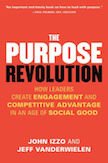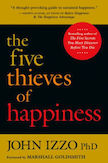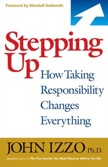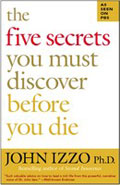The Five Secrets You Must Discover Before You Die
"In my experience, the two things humans want most are to find happiness and to find meaning," Izzo writes. In this ready-made spiritual quest, the business consultant and ordained Presbyterian minister interviewed more than 200 people from ages 60 to 106. The answers they received led him and his team to the belief that there are five secrets to happiness. Izzo's interviewees were selected after relatives and friends submitted their names as wise people with something to teach. The list was narrowed from 1,000 names to a diverse group that includes men and women, Muslims and Christians, doctors, barbers, priests, and aboriginal people.
Throughout the book, Izzo presents each lesson with heartfelt responses and anecdotes from these wise elders to illustrate how living each lesson has made them fulfilled and unafraid of death. "Just be yourself" has been the advice of every parent since Polonius. Izzo found that the simple phrase, "be true to yourself," is the first secret. Seventy-two-year-old Elsa told the author, "In order to tell a person the secret to happiness, I would have to sit down with them, look them deeply in the eyes, find out who they are, find out what their dreams are." A college professor discussed with him the difference he sees every day between his students who are following their dreams and those who aren't. Izzo also explains that the word "sin" comes from an ancient Greek word related to archery that literally means "to miss the mark." He believes that to sin, in the original sense of the word, means to "miss the mark of what you intended your life to be." After "leave no regrets," "become love," and "live the moment," the book's final secret is "give more than you take." As George, a seventy-one-year-old physicist, put it, "sooner or later you realize that you are not going to take anything with you but you can leave something behind." Each chapter ends with questions that encourage readers to think about the way they are living their own lives, such as, "Did I make the world a better place this week in some small way?"
In a society where old age is often seen as weakness, The Five Secrets is a refreshing reminder that our elders have much to teach. Izzo writes, "Whenever I am going to take a trip, I choose hotels by using a website that taps into the experiences of hundreds of other travelers ... It occurred to me that one could apply this same method to discovering the secrets to living well and dying happy." How many pitfalls and heartaches could be avoided if we consulted with travelers who have taken the road before?








